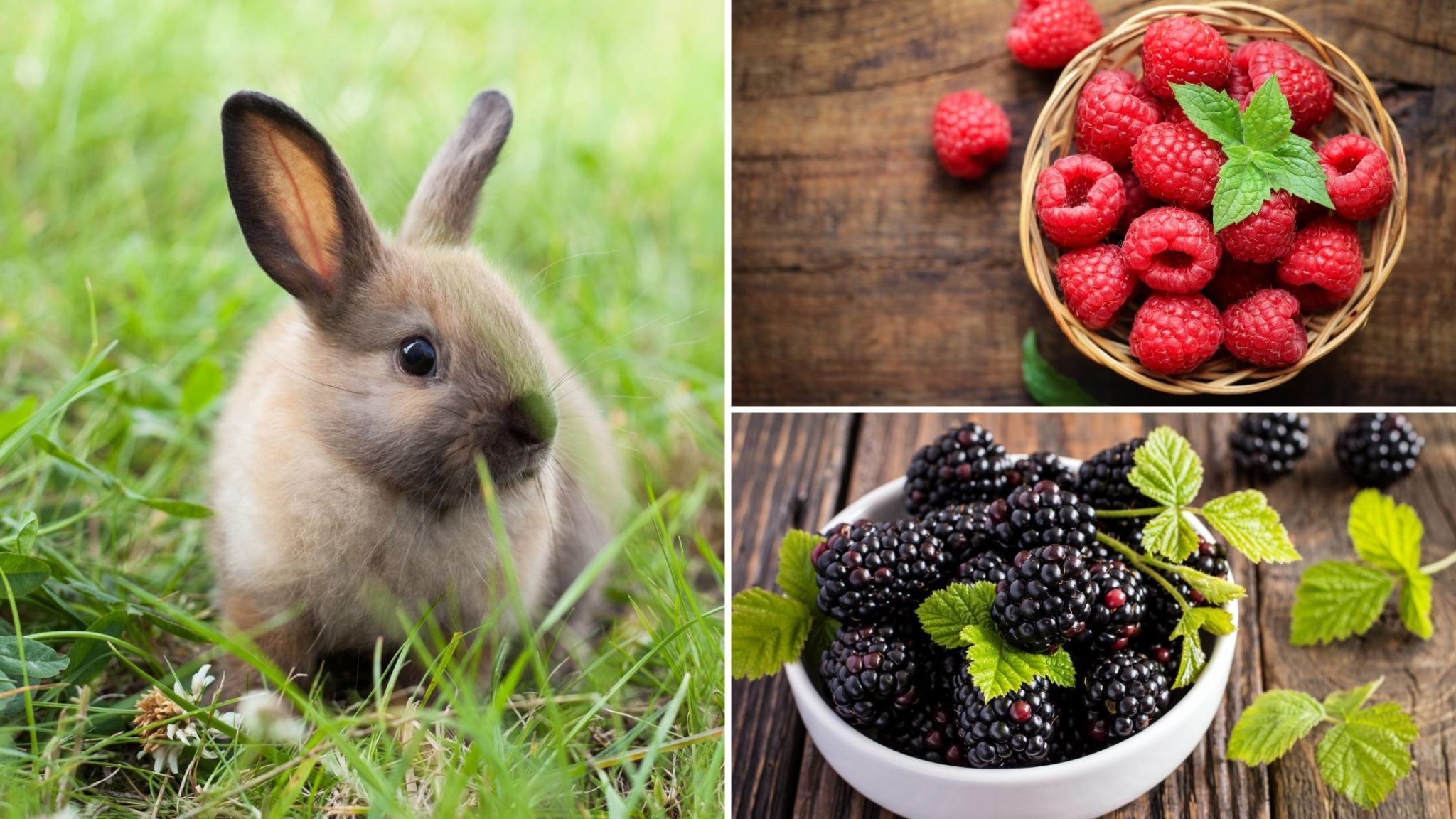Blackberries, those juicy, dark-colored fruits, might tempt you to share a bite with your furry friend. But can rabbits eat blackberries? The answer is a cautious yes, but with some important caveats. This comprehensive guide covers everything you need to know about safely incorporating blackberries into your rabbit’s diet.
Blackberry Basics for Bunnies
Blackberries can be a healthy treat for rabbits, offering antioxidants, Vitamin C, and minerals. However, their sugar content requires careful portion control. Overindulgence can lead to digestive upset, so moderation is key.
Navigating the Nutritional Landscape
While blackberries offer nutritional benefits, they are not essential to a rabbit’s diet. A balanced diet of hay, fresh vegetables, and water provides all the necessary nutrients. Blackberries should be considered a supplementary treat, not a replacement for these staples.
Perfect Portions and Preparation
Only ripe, dark blackberries should be offered to rabbits. Avoid reddish, pinkish, or wilted berries. A small handful (2-3 berries) once or twice a week is a reasonable guideline. Thoroughly wash fresh berries before serving to remove any pesticides or dirt. Remove stems to prevent choking hazards. Never offer dried blackberries due to their concentrated sugar content.
Potential Problems and Precautions
Overfeeding blackberries can lead to digestive issues like diarrhea and gas. In severe cases, it could contribute to gastrointestinal stasis, a life-threatening condition. Always introduce new foods gradually to monitor for adverse reactions. If your rabbit shows any signs of illness after eating blackberries, contact your veterinarian immediately.
Alternatives to Blackberries: Expanding the Berry Horizon
If you’re looking to diversify your bunny’s treats, consider other berries like raspberries and blueberries, which generally have lower sugar content than blackberries. Strawberries, while permissible in tiny amounts, are higher in sugar and should be given sparingly. Remember, variety and moderation are key to a healthy and happy bunny.
Is Every Berry Bunny-Safe?
While many berries are safe for rabbits in moderation, some should be avoided entirely. This section will help you distinguish between the good, the bad, and the berry best.
Berry Benefits and Risks: A Balanced Perspective
Berries can be a nutritious and enriching addition to a rabbit’s diet. They offer a variety of vitamins, minerals, and antioxidants. However, even safe berries should be given sparingly due to their sugar content, which can disrupt a rabbit’s sensitive digestive system.
Beyond Blackberries: Exploring Other Berry Options
Beyond blackberries, raspberries and blueberries are excellent choices, as they are lower in sugar and still packed with nutrients. Strawberries can be offered occasionally in very small quantities, but their higher sugar content warrants caution.
Choosing and Preparing Berries for Your Bunny: A Step-by-Step Guide
Always select fresh, ripe berries for your rabbit. Avoid those that are wilted, moldy, or show signs of spoilage. Wash berries thoroughly to remove any pesticides or dirt. If you choose to offer strawberries, remove the leaves and stems to prevent choking hazards.
Berry Serving Sizes: Less is More
When introducing any new berry, start with a tiny portion – perhaps a quarter of a berry. Observe your rabbit for 24 hours for any signs of digestive upset. If all is well, you can gradually increase the amount, but always keep portions small. A few berries once or twice a week is a good guideline.
Dried Berries: A Definite No-No
Dried berries are essentially concentrated sugar bombs. The drying process removes water, leaving behind a much higher concentration of sugar than fresh berries. This can be extremely harmful to a rabbit’s digestive system and should be avoided entirely.
Fruits Rabbits Should Never Eat
While some fruits can be a healthy treat for rabbits, others are downright dangerous. This section explores the fruits you should never feed your bunny.
Forbidden Fruits: Protecting Your Rabbit from Toxic Treats
Certain fruits contain substances that are toxic to rabbits and can cause serious health problems, even death. It’s crucial to familiarize yourself with these forbidden fruits to ensure your bunny’s safety.
Avocado: A Major No-No for Bunnies
Avocados contain persin, a toxin that can be harmful to many animals, including rabbits. Persin can cause breathing difficulties, fluid buildup around the heart, and even death. Never offer your rabbit any part of an avocado, including the flesh, skin, or pit. Delve deeper into the fascinating world of bone spicule formation, which can be an indicator of certain conditions in rabbits.
Cherries and Other Stone Fruits: A Risky Business
Cherries, along with other stone fruits like peaches, plums, and apricots, contain cyanide, particularly in their pits and stems. Cyanide is highly toxic to rabbits and can be fatal if ingested. While the flesh of these fruits might not contain as much cyanide, it’s safest to avoid them altogether to eliminate any risk.
Citrus Fruits: Too Acidic for Bunny Bellies
Citrus fruits like oranges, lemons, and grapefruits are highly acidic. This acidity can irritate a rabbit’s delicate digestive system, potentially causing mouth sores, diarrhea, and other digestive upset. It’s best to stick to rabbit-safe fruits and avoid citrus altogether. You might also be interested in understanding the reasons behind an elevated canine alk phosphatase high level, as some principles of animal health can be similar across species.
The Importance of a Balanced Diet: Hay is King
Remember, the cornerstone of a healthy rabbit diet is hay. Hay should make up approximately 80% of their daily food intake, providing essential fiber for digestion and keeping their teeth healthy. Fresh vegetables should be the next priority, followed by limited amounts of rabbit-safe fruits as occasional treats.
| Fruit | Safe for Rabbits? | Notes |
|---|---|---|
| Apple | Yes, sparingly | Remove core and seeds, which contain trace amounts of cyanide. |
| Banana | Yes, very sparingly | Very high in sugar; offer tiny pieces infrequently. |
| Blackberries | Yes, in moderation | Monitor for digestive upset. |
| Blueberries | Yes, in moderation | Good source of antioxidants. |
| Cantaloupe | Yes, in moderation | Remove rind and seeds. |
| Cherries | No | Pits and stems contain cyanide, toxic to rabbits. |
| Citrus Fruits | No | High acidity can cause digestive upset. |
| Avocado | No | Contains persin, toxic to rabbits. |
| Grapes & Raisins | No | Toxic to rabbits. Causes kidney failure. |
| Honeydew Melon | Yes, in moderation | Remove rind and seeds. |
| Strawberries | Yes, sparingly | High in sugar; offer small amounts infrequently. |
| Watermelon | Yes, in moderation | Remove rind and seeds; mostly water. |
This guide provides general advice. Always consult with a veterinarian experienced with rabbits for personalized dietary recommendations, especially if your rabbit has pre-existing health conditions. This ensures your bunny receives the best possible care tailored to their individual needs. Remember, responsible pet ownership involves understanding your pet’s specific needs and providing the best possible care.
- Discover Long Black Pepper: Flavor & Health Benefits - April 25, 2025
- Shocking Twists: The Grownup Review: Unreliable Narration - April 25, 2025
- A Quiet Place Book vs Movie: A Deep Dive - April 25, 2025
















